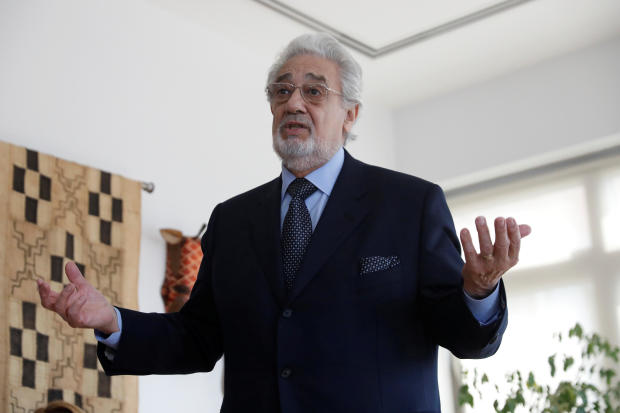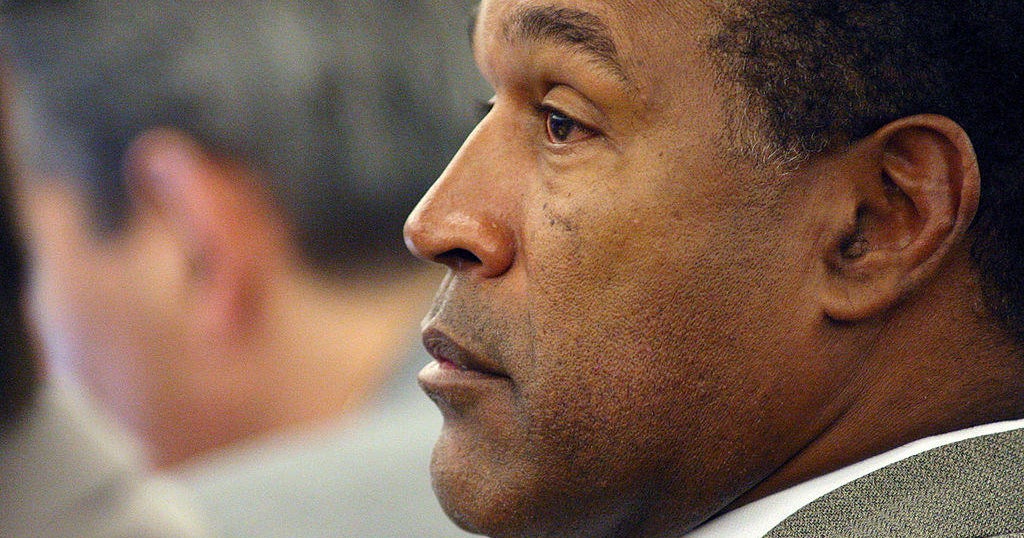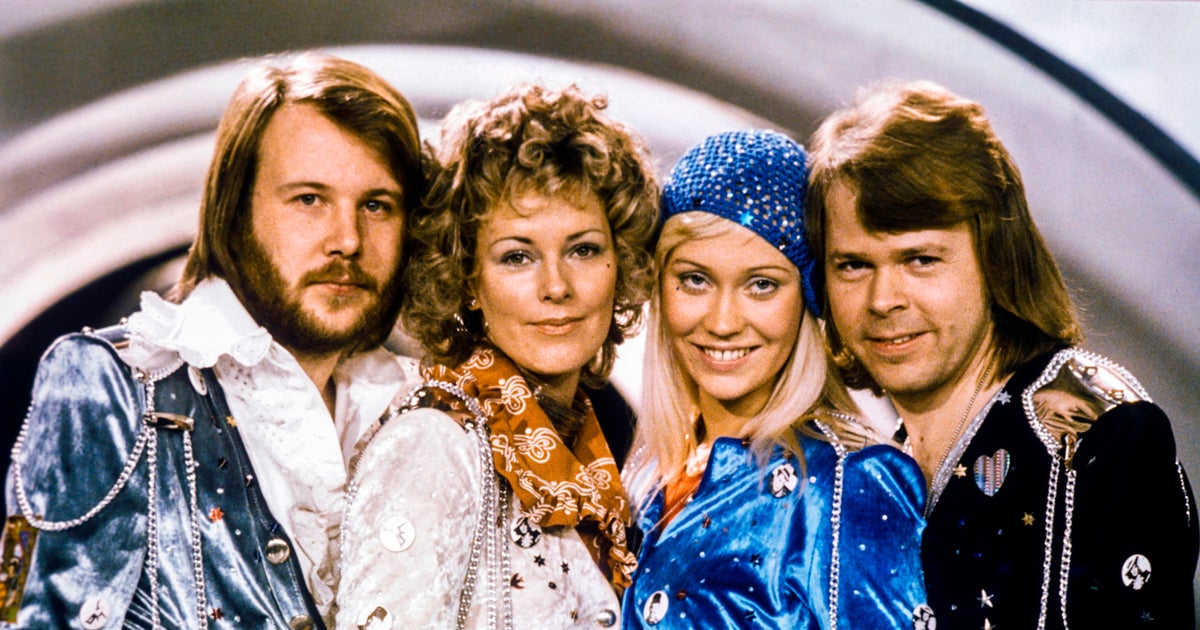Opera legend Plácido Domingo a longtime sexual harasser, at least 9 women allege
For decades, Plácido Domingo, one of the most celebrated and powerful men in opera, has tried to pressure women into sexual relationships by dangling jobs and then sometimes punishing the women professionally when they refused his advances, numerous accusers told The Associated Press. Domingo is regarded as one of the greatest opera singers of all time.
The San Francisco Opera announced Tuesday an Oct. 6 concert featuring Domingo would be canceled.
He is also is a prolific conductor and the director of the Los Angeles Opera. The multiple Grammy winner is an immensely respected figure in his rarefied world, described by colleagues as a man of prodigious charm and energy who works tirelessly to promote his art form.
At 78, Domingo still attracts sellout crowds around the globe and continues adding to the 150 roles he has sung in 4,000-plus performances, more than any opera singer in history.
But his accusers and others in the industry say there is a troubling side to Domingo - one they say has long been an open secret in the opera world.
Eight singers and a dancer have told the AP that they were sexually harassed by the long-married, Spanish-born superstar in encounters that took place over three decades beginning in the late 1980s, at venues that included opera companies where he held top managerial positions.
One accuser said Domingo stuck his hand down her skirt and three others said he forced wet kisses on their lips - in a dressing room, a hotel room and at a lunch meeting.
"A business lunch is not strange," said one of the singers. "Somebody trying to hold your hand during a business lunch is strange - or putting their hand on your knee is a little strange. He was always touching you in some way, and always kissing you."
In addition to the nine accusers, a half-dozen other women told the AP that suggestive overtures by Domingo made them uncomfortable, including one singer who said he repeatedly asked her out on dates after hiring her to sing a series of concerts with him in the 1990s.
The AP also spoke to almost three dozen other singers, dancers, orchestra musicians, members of backstage staff, voice teachers and an administrator who said they witnessed inappropriate sexually tinged behavior by Domingo and that he pursued younger women with impunity.
Domingo did not respond to detailed questions from the AP about specific incidents, but issued a statement saying: "The allegations from these unnamed individuals dating back as many as thirty years are deeply troubling, and as presented, inaccurate.
"Still, it is painful to hear that I may have upset anyone or made them feel uncomfortable - no matter how long ago and despite my best intentions. I believed that all of my interactions and relationships were always welcomed and consensual. People who know me or who have worked with me know that I am not someone who would intentionally harm, offend, or embarrass anyone.
"However, I recognize that the rules and standards by which we are - and should be - measured against today are very different than they were in the past. I am blessed and privileged to have had a more than 50-year career in opera and will hold myself to the highest standards."
LA Opera issued a statement to CBS News saying it will "investigate the concerning allegations."
"Domingo has been a dynamic creative force in the life of LA Opera and the artistic culture of Los Angeles for more than three decades. Nevertheless, we are committed to doing everything we can to foster a professional and collaborative environment where all our employees and artists feel equally comfortable, valued and respected," a spokesperson said.
Seven of the nine accusers told the AP they feel their careers were adversely impacted after rejecting Domingo's advances, with some saying that roles he promised never materialized and several noting that while they went on to work with other companies, they were never hired to work with him again.
Only one of the nine women would allow her name to be used - Patricia Wulf, a mezzo-soprano who sang with Domingo at the Washington Opera. The others requested anonymity, saying they either still work in the business and feared reprisals or worried they might be publicly humiliated and even harassed.
The accusers' stories lay out strikingly similar patterns of behavior that included Domingo persistently contacting them - often calling them repeatedly at home late at night - expressing interest in their careers and urging them to meet him privately for a drink or a meal, or at his apartment or hotel room, under the guise of offering professional advice.
None of the women could offer documentation, such as phone messages, but the AP spoke to many colleagues and friends who they confided in. In addition, the AP independently verified that the women worked where they said they did and that Domingo overlapped with them at those locations.
The AP has withheld certain details in cases where it could lead to identification of the accuser.
Two of the women said they briefly gave in to Domingo's advances, feeling they couldn't risk jeopardizing their careers by saying no to the most powerful man in their profession.
One of them said she had sex with him twice, including at the Biltmore hotel in Los Angeles. When Domingo left for a performance, the woman said, he put $10 on the dresser, saying, "I don't want you to feel like a prostitute, but I also don't want you to have to pay to park."
Many of the accusers said they were warned repeatedly by colleagues to never be alone with Domingo, even in an elevator. If they did join him for a meal, they said they were told to avoid alcohol and meet at a public place - for lunch, not dinner.
The women making the accusations were mostly young and starting their careers at the time.
Several said they took extreme measures to avoid Domingo, including no longer using the ladies' room near his office, asking other singers or backstage staff to stick with them while at work, and not answering their phones at home.
The dancer called her avoidance technique "the bob and weave, the giggle and get out," and one soprano labeled it "walking the tightrope."
Domingo's influence in the opera world is so great that Wulf was the only person among the dozens who talked to the AP who spoke on the record. And many of those who spoke did so reluctantly, fearing retribution but also not wanting to inflict collateral damage on the industry itself.
But ultimately, those who talked to the AP said they felt emboldened by the #MeToo movement and decided the most effective way to attack the entrenched sexual misconduct in their industry was to call out the behavior of opera's most prominent figure.
"There is an oral tradition of warning women against Placido Domingo," said a mezzo-soprano who worked at the LA Opera but is not among the accusers. She echoed advice that several women said they had received: "Avoid interaction with him at all costs. And definitely don't be alone with him."




